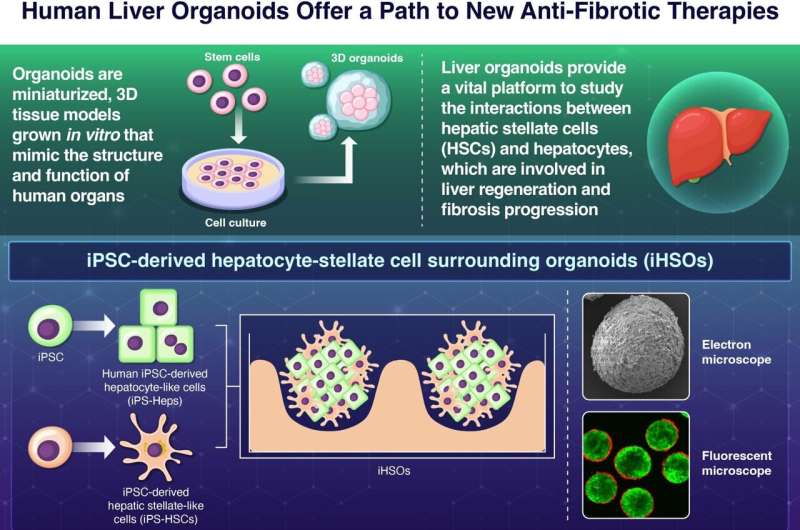The human body has an extraordinary ability to heal. However, sometimes, the body’s repair system does more harm than good. This is the case with chronic liver disease, where repeated injury triggers cycles of damage and repair that, over time, lead to the overproduction of extracellular matrix (ECM).
As healthy liver tissue is gradually replaced by stiff scar tissue—a process known as fibrosis—it can progress to cirrhosis, an irreversible stage that often results in liver failure. Currently, liver transplantation is the only treatment option for advanced cirrhosis. This highlights the urgent need for therapies that can stop or even reverse fibrosis before it becomes permanent.

